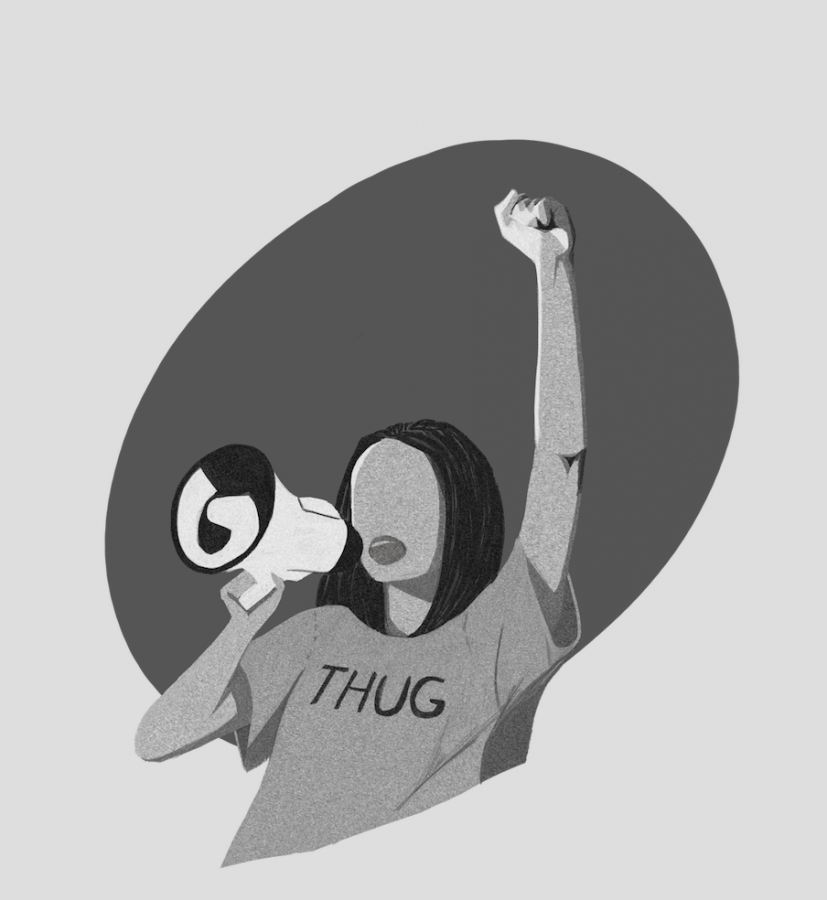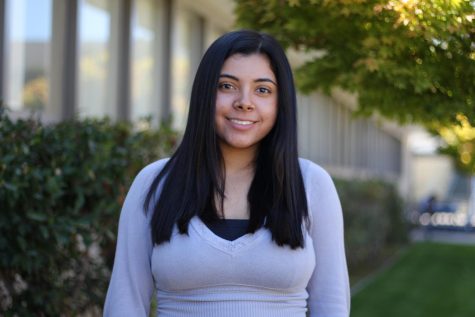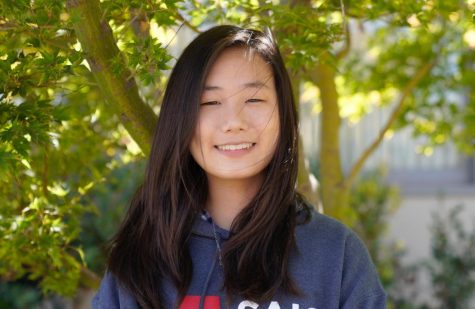“The Hate U Give” voices vital social issues
November 8, 2018
Rapper Tupac Shakur, who went by the stage name “2Pac,” explained that T.H.U.G.L.I.F.E is an acronym for “The Hate U Give Little Infants F**ks Everybody.” Even 22 years after his death, 2Pac continues to be an influence in today’s society. Inspired by 2Pac’s commentary on prejudice, Angie Thomas references T.H.U.G.L.I.F.E in her best selling novel, The Hate U Give.
Director George Tillman Jr.’s adaptation of The Hate U Give is a captivating testimony of today’s harsh realities that gives its viewers a broadened perspective on inequality. Given that this movie illustrates the importance of taking a stand against injustices, it is necessary for people to watch this film.
Both the novel and movie effectively convey how society perpetuates racism and how people pass down their prejudices to their children, giving hate to “little infants.” However, at times, the movie isn’t able to articulate this message as eloquently as the novel. With so many metaphors woven in, the film resorts to including voiceover in order to explain the symbols that the audience probably can decipher themselves.
Still, though Tillman’s adaptation may not entirely live up to the book, it is still a powerful and gripping movie that brings attention to the African American community and the discrimination they endure.
The movie focuses on Starr Carter (Amandla Stenberg), a black teen who struggles with her identity as she navigates between her privileged school, Williamson Prep, and her poor neighborhood, Garden Heights. She is involved in both environments but also torn between these two conflicting worlds.
In a pivotal moment, Starr witnesses the death of her long-time friend Khalil Harris (Algee Smith) at the hands of a white police officer, and must decide between keeping a low profile to avoid attention or taking a stand for her friend.
Headed by Stenberg’s passionate portrayal, this movie provides a candid and heartbreaking view into the consequences of racism.
Some critics initially condemned the premise of The Hate U Give because they saw it as anti-police. Though Tillman’s movie captures police brutality, he also includes scenes that acknowledge that police can better our communities. Thus, Tillman does not generalize all cops, and the movie is able to efficiently criticize aspects of society without attacking any of the viewers.
Being one of the few mainstream pieces to tackle an issue as complex as police brutality, The Hate U Give is beautifully delivered. From the subtle but purposeful lighting choices to the fantastic acting performances, it is clear that so much time and dedication was devoted to this movie. All of the details Tillman deliberately includes allow his audience to become completely immersed in his film.
While the movie possesses many favorable aspects, it still has flaws.
Despite the extensive development of Starr’s character, screenwriter Audrey Wells fails to flesh out other relationships. Starr’s romance with her boyfriend seems shallow and unnecessary, contributing nothing significant to the plot. Further, the close relationship Starr has with her cop uncle (Common) in the novel is let down by their on-screen relationship, which is superficial and falls short of conveying a black cop’s perspective on police brutality.
Still, in a time where racism and inequality run rampant in America, The Hate U Give is a thought-provoking and necessary film that reminds us to pay attention to real instances of police brutality. Officer Roy Oliver murdered Jordan Edwards in 2017. Officer Jason Van Dyke shot Laquan McDonald 16 times in 2014. Eric Garner. Tamir Rice. Freddie Gray. All were victims of police brutality. Moments like these seem so inconceivable, yet they happened.
Teenagers often feel powerless and useless, feeling that they do not have much freedom to make their own decisions, but individuals like Starr empower teens. Noticing the growth in her voice and confidence sparks hope in the eyes of the youth.
When 2Pac died, his legacy comforted the lives of millions of underprivileged people. T.H.U.G.L.I.F.E. is more than just an acronym–it is a call to action. Too many teens and children grow accustomed to racism and discrimination. Until the world breaks away from this ongoing cycle, the youth will continue to suffer from the hate they are given.






